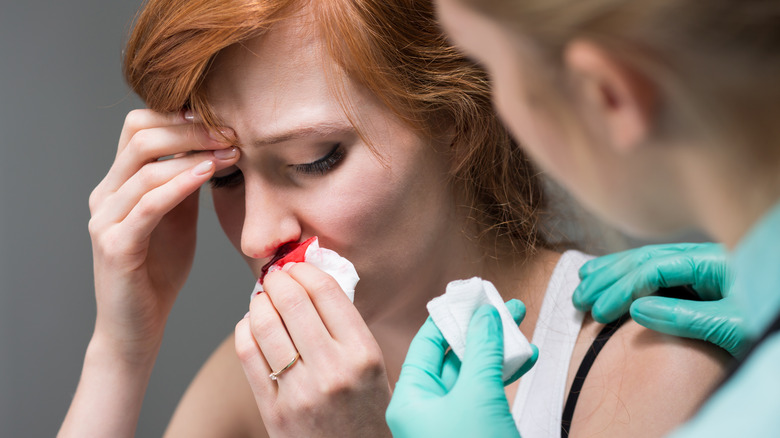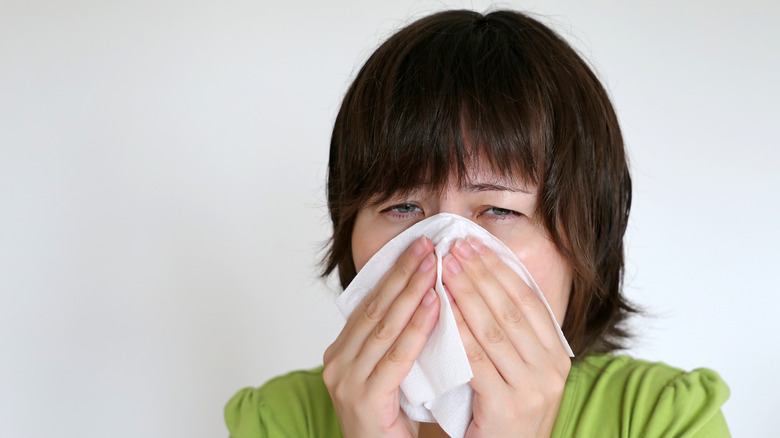The First Thing You Should Do When You Get A Nosebleed
Nosebleeds are a unique sort of injury. They look truly gruesome but are so common that most people, once they know what's going on, don't even blink. They just hand over some tissue. And when it comes to media, nosebleeds are a handy way to create a medical emergency when the plot needs it, one easily cleared up with a couple napkins and orders for the person to tip their head back.
Unfortunately, for quick-thinking movie characters, and the people who emulate them, tilting your head back is not the best way to deal with a nosebleed. Neither is pinching off the flow of blood, at least not right away. And depending on which type of nosebleed you have, you might need more help than a box of tissues can give, according to The Cleveland Clinic.
The first type of nosebleed is called an anterior bleed, meaning it starts in the front of the nose where tissue is thin and blood vessels break easily. They're the most common nosebleeds among children, since they're easily caused by things like dry noses and nose picking. The second type of nosebleed, a posterior bleed, starts deeper in the nose where blood vessels are larger. They tend to cause heavier nosebleeds (almost like those scenes from Sweet Home) and are more often caused by blood thinners, trauma, or drug use among other things.
Regardless of the cause or severity, both nosebleed types have to be addressed the same way when they first start. Their reaction to initial treatment is what determines whether medical intervention is needed.
Make sure you're handling your nose bleed the right way
Conventional wisdom says that when a nosebleed hits, you should immediately tip your head back and pinch your nose shut. Unfortunately, this causes the blood to run down into your throat where it is then swallowed into your stomach. Enough blood in your digestive system will lead to an upset stomach and potentially even vomiting, according to The Cleveland Clinic. Instead, you should sit up straight and lean forward enough to keep the blood from hitting your chest but not so far that your head winds up between your knees. This reduces the amount of blood at the bleed site and the amount that hits your stomach.
The next step, according to The Mayo Clinic, is not to pinch your nose shut. Instead, you want to gently blow your nose to clear out any clots. Only then should your pinch your nostrils shut. Hold them closed for 10 to 15 minutes without 'checking them' periodically. At the end of the full 10 to 15 minutes, release your nose. Repeat the process again if it is still bleeding and seek medical attention if the bleeding does not stop after 30 minutes or if you feel lightheaded, especially if the nosebleed started after being hit in the head or face.
Nosebleeds aren't usually serious. But old habits — and bad tv tropes — die hard, leaving people with the wrong idea of how to handle them. So next time you get hit with a nosebleed, remember to lean in rather than look up. You'll feel better for it in the end.


